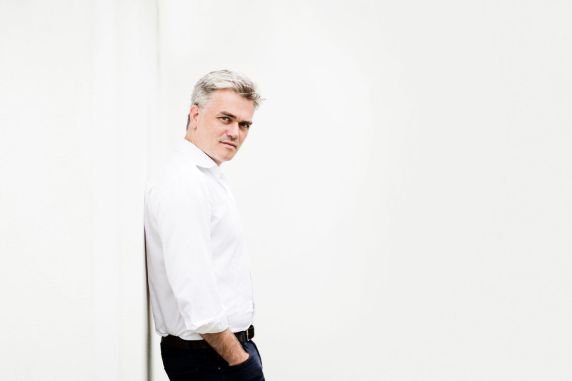Mostly Mozart Festival Orchestra
Edward Gardner, conductor
Jeremy Denk, piano
David Geffen Hall
Lincoln Center
New York, NY
July 29, 2017
Mozart: Masonic Funeral Music, K477
Beethoven: Piano Concerto No. 4 in G major, Op. 58
Encore:
Mozart: Piano Sonata No. 16 in C major, K545 – 2. Andante
Schubert: Symphony No. 5 in B flat major, D485
A New York summer tradition for over half a century, the Mostly Mozart Festival is a paean to not only its eponymous composer, but as the name suggests, those who bore his influence. Saturday night’s program embodied just that with music of Mozart prefacing works by Beethoven and Schubert that exuded a quintessentially Mozartean classicism. At the podium was the probing English conductor Edward Gardner who opened the evening with a user-friendly introduction, explicating the connections between the selections on the program.

The heart of the program was Beethoven’s genial Piano Concerto No. 4 in G major, which brought forth the charismatic soloist Jeremy Denk. Denk’s unaccompanied entrance was of a dreamy serenity, and bell-like clarity of tone. His fingers spun a wondrously flowing melodic line, and not at the expense of plumbing the intensity of the work’s more dramatic moments. Denk and Gardner were a somewhat unusual coupling; while the pianist was patently idiosyncratic, often looking out into the audience with closed eyes, and playing with a remarkable (perhaps too remarkable) flexibility, Gardner was much more straight-laced. In spite of the incongruity of their approaches, their results were largely inspired, and Gardner’s sensitive accompaniment was adroitly balanced with the piano.
Denk began the first movement’s cadenza unassumingly, only to soon fill the depths of the Geffen Hall with resound. Agitated strings opened the Andante con moto, in due course calmed by the beauty of Denk’s chordal passages. The jocular concluding rondo was elegant yet down to earth, pearly and effervescent even through the minor key episodes. Denk obliged the enthusiastic audience with an encore by – you guessed it – Mozart, the slow movement from the Piano Sonata in C major, K545, familiar to any young piano student. Under Denk’s hands, this was a study in poise and refinement.
While Schubert looked ahead to Romanticism in his tempestuous Fourth Symphony, the Fifth was quite to the contrary: a glance backwards towards his classical antecedents. The Festival Orchestra delivered the opening movement with a blended and homogeneous sound, opting for the repeat of the graceful exposition, and Gardner guided orchestra and audience alike through development’s exploration of distant keys with aplomb. Gorgeous tones seemed to pour from Gardner’s baton in the slow movement, highlighted by an especially fine flute solo from Jasmine Choi, who that evening treated concertgoers to a pre-concert recital with pianist Roman Rabinovich. A bit more fire was introduced in the minuet, though not without a certain joviality. The finale was taken at a brisk pace, a beaming Haydnesque wit tempered by Mozartean drama, a fitting way to close Schubert’s lovely tribute to his predecessors.


